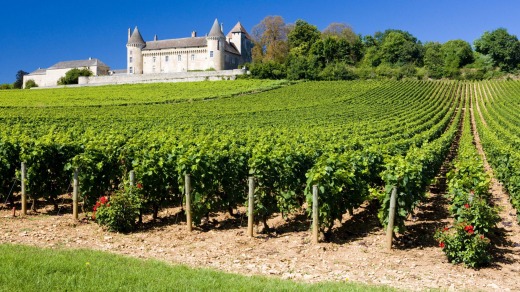I am from the typical French provincial bourgeoisie, from Burgundy where my family has produced wine for generations, and my only ambition is that people would say ‘I read a Latour 1992’ with the same pleasure as they would say ‘I drank a Latour 1992’! I have still a long way to go, as you see. (from ‘An Interview with Bruno Latour’, Configurations No. 1, Vol. 2, pp.247–268, with T. Hugh Crawford, 1993).
Latour’s provenance is viticultural; he was born in 1947 in Beaune into a family of winegrowers (his family are still engaged in the wine business at the Maison Louis Latour in the Bourgogne district). The landscape and processes of the vineyard were thus the context for his upbringing and early formation. There is significance to this apparently incidental biographical detail. Indeed, it also follows up a somewhat enigmatic, and yet intriguing, comment that was made in a 2007 lecture by Peter Sloterdijk (who has become in recent years one of Latour’s closest philosophical interlocutors), when he suggested without offering further clarification that Latour’s entire system of thought is characterised by a ‘primary Burgundism’.
A vineyard is a site of intense logistical activity. Grapevines, terroir, rhizobacteria, trellis and canopy management, fermentation processes, mechanical harvesting, filtration, the glass industry and storage—all these actors and processes of agency, along with many others, contribute to the complex operation of producing and distributing wine. But the way in which these combine requires attention. In ordinary language, to speak of the ‘logistics’ of the vineyard is to speak of the human management of the procedures that take place on that site. Thus, the vintner makes use of the techniques and technologies that are at his disposal to oversee and bring about a desired outcome, namely, the production of wine for sale and consumption. Viticulture is thus understood as an order that is imposed upon nature by humans, just as has been the case from the time of the earliest recorded evidence of grape vine cultivation in human history.
Latour’s personal experience of the ‘logistics’ of the vineyard, however, is inflected in a somewhat different way, in at least two regards. First, he understands winegrowing not merely in terms of the human management and supervision of nature, but rather as a generative process involving a great number of different actors and processes of agency, both human and nonhuman. As every winemaker knows, what we most value about wine is its complexity, that is, the multiple combinations of factors that contribute to its distinctive appellation. These emerge in the interplay of climate, soil, aspect, altitude, grape variety, and so on—in addition to the vintner’s art, which can now be understood as one, but only one, node of agency in the midst of many others. Accordingly, the rigidly-demarcated boundaries between ‘human’ (the active subject) and ‘nature’ (the passive object) begin to dissolve. Wine is not produced by the human alone, but neither is it given in a pristine or original state of nature prior to its entanglement with the human. This is precisely what Latour indicates when, in a recent article, he reminisces about the countryside of his native Burgundy, describing it as that which is ‘so old and so artificial that it was already ancient at the time of Roman invasion of Gaul’ (‘Fifty Shades of Green‘, 2015, p.1)—the physical landscape stands as a continual reminder that it has been constructed (or, to use a word he prefers, ‘composed’) by means of plural actors over time. His entire subsequent system of thought presupposes the progressive composition of not just the Burgundian countryside, but of every aspect of the world we inhabit.
But second, Latour also describes his upbringing and early formation, his ‘happy childhood in Beaune’ in the context of the landscape and processes of the vineyard, as inculcating in him ‘the most solid realism’ (‘Biography of an Inquiry‘, 2013, p.292). Understanding reality as progressively composed does not lead to relativism. It is this combination that makes Latour such an interesting thinker, for it enables him to arraign the entire Western tradition, including that of contemporary Continental philosophy, for its commitment to materialism and scientism, such that it addresses the world by means of (what Latour supposes to be) a dangerous antinomy: ‘either it is made or it is real’ (‘On the Modern Cult of the Factish Gods’, 2010 p.81). For Latour, these two are not mutually exclusive.
